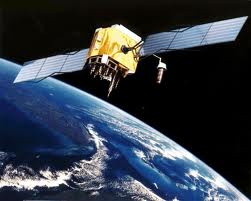
Jeddah, April 21: Thieves who illegally encroach on government lands will come under electronic surveillance by a number of government departments using aerial photos taken by satellites, local Arabic daily Al-Watan reported yesterday quoting the director of the media center of the Jeddah municipality.
"The aerial photos are updated daily by the Geographical Data System Department (GDSD) which is a new administration at the municipality," Abdul Aziz Al-Nihari said.
He said the photos processed by the GDSD are very clear and accurate and will help the officials of the municipality and other government departments to uncover land encroachers and thieves who illegally acquire government land.
"Through these pictures any violation such as confiscating government land or building illegal courtyards to rent to illegal foreigners will be immediately discovered," he said.
According to Al-Nihari, government lands were earlier watched by teams from the municipality who used to make field tours of remote areas in Jeddah. "These areas are far from the city center. The field teams find it difficulty to monitor them or know exactly what was going on inside them," he said.
Al-Nihari said the aerial photos will help uncover all types of violations going on inside the illegal courtyards including garbage recycling, packaging, treating old car tires, manufacturing bricks and gypsum and others.
He said the Civil Defense, the police and Passport Department were assisting the municipality in its efforts aimed at fighting land encroachment and catching thieves.
Al-Nihari said the aerial photos revealed large tanks dug by some violators to store bitumen, which is mixed with concrete to make asphalt.
Spokesman of Makkah province’s passports police Lt. Col. Muhammad Al-Hussain said his officers were coordinating efforts with the municipality to monitor illegally acquired land and arrest foreigners who were conducting illicit activities there.
He said passports police patrols will also be using aerial photos in their raids against illegal foreigners.





Comments
Add new comment